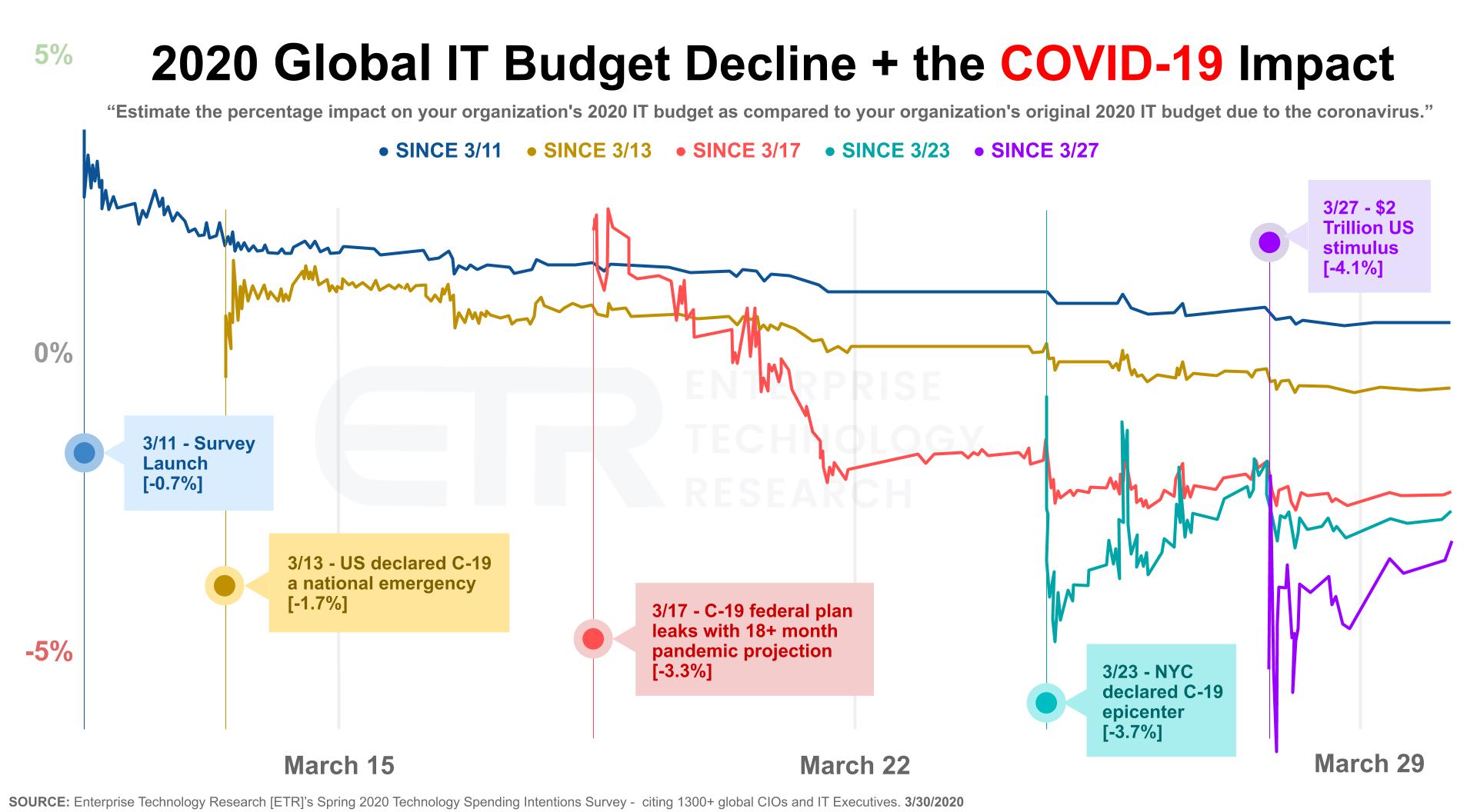
Chris Preimesberger47


































Q5: Looking ahead, when we're out the back end of the pandemic, how will your workplace be changed, and will you add new collaboration tools?

Seth Elliott
A5: Boring answer to this for us is it won't have changed much in regards to what we are discussing here - we have collaboration tools we have distributed and WFH activities that were in place before the pandemic so this hasn't change that much.

Andrew Filev
A5: Even when this is contained, it’s unlikely things will return to normal. Right now, we're seeing the forced acceleration of previously slow-moving trends that are likely to shape the future of the workplace for the long haul. #eWEEKchat

Tom Randall
A5. Productivity could increase with less meetings! This pandemic has shown that many ‘would-be’ meetings can actually be resolved through IM, audio/video chat, or email. Employees can now rightfully ask: do we actually need a meeting for xyz? #eWEEKchat

Andrew Filev
A5: Telecommuting is one way. Any objections businesses had previously, COVID-19 may bring this into the mainstream and show leaders that with the right technology, culture, and expectations, employees can be just as productive and effective from home. #eWEEKchat

@usmcjost
A5: Very little I suspect for us, we already have an amazing WFH culture. I expect we may see more of our clients loosen some requirements for on site personnel in some roles.

Sean Broderick
A5: Samuel Goldwyn said one should "Never make forecasts, especially about the future” but I am definitely in the wait and see camp. We are still very much in the honeymoon period with regards to working from home and a fully remote workforce.

Kurt Schrader
A5: Our workplace will be fully remote first. Still up in the air about whether or not we even get a new office when our lease runs out, and I know that we're not the only company thinking about this.

Dan Lahl
A5 I think so. Our team is pretty much virtual now, but I think the trend will continue across the board, except for some industries like construction, mfg, leisure. But even those I believe will see a move to virtual

Andrew Filev
A5: Virtual events is another way things may change. Whether this format sticks is unknown. The measure of success for trade shows is in the value of the sales they generate and peer to peer connections they build. If successful, their appeal may be lasting. #eWEEKchat

Sean Broderick
A5: I have an inkling that we will bounce back to a very similar pre-covid scenario when the conditions allow. Working from home will become much more accepted and companies may move to a halfway house model where employees work 1-2 at home per week

Seth Elliott
A5: On the other hand for @Gtmhub and i assume for all of us - this is accelerating adoption of solutions we all offer that address some of the distributed challenges and that genie won't go back in the bottle.

@usmcjost
A5: Corporate travel may come under more scrutiny across the board, the why can't you just use Zoom argument may bubble up.

Sean Broderick
@thomaserandall I feel like WFH means far more meetings and web-conferencing all day is exhausting!

Dan Lahl
@sean_broderick if your view is true and things return to "normal", then my large buy of Boeing stock at $130 was a good idea!!! :-)

Peter Burris
A5. At minimum, a recognition that WHF infrastructure is not synonymous with WFH tools and applications. Most "collaboration" tools aren't that sharp. Lots of talk and experimentation is likely, but not much new adoption until the tools and apps improve a lot.

Tom Randall
A5. We have to careful when deciding if we need new collaboration tools, especially if cost-cutting. @infotechRG's research has shown that rationalizing collaboration tools around required capabilities see better results in terms of end user satisfaction, security, productivity.

@usmcjost
A5: Maybe new ways of measuring "productivity" or moving some companies from "productivity to outcomes"

Seth Elliott
A5: So i think that this idea of a different view on infrastructure needed to enable and take advantage of distributed teams will evolve rapidly as a result of a forced trial.

Seth Elliott
@usmcjost indeed! outcomes is what we deal with every day and i think you're right on this - it is fostering more focus on this

Mike Jumper
A5: Our workplace - not very much, TBH. We are always remote, even in office, due to our desktops being in the cloud. I'm hopeful that other companies will shift towards WFH as a core requirement that must always be available.

Dan Lahl
@editingwhiz HI Chris, have to drop, thanks for the conversation!

Jose Pastor
A5: Trends will accelerate with respect to more distributed and and remote work forces. Many people and businesses are tooling up for remote work, and proving that is can be successful. Tools and practices in place are great enablers for long term WFH change.

Molly Presley
A5: Aside from everyone showing up with a new stylish mask at the office instead of a fun Zoom background, the Qumulo workplace won't be changed. But, many of our users' data intensive workloads will have shifted to the cloud, likely permanently. #eWEEKchat

Seth Elliott
@danlahl now you have to disclose this in every conversation to be safe :(

Sean Broderick
@andrewsthoughts Very interested to see the return of virtual only conference. @pmmalliance is running a festival in June that looks amazing. Hard to replicate in person events though! I think people will dying for a trip abroad when conditions allow

@usmcjost
@sethaelliott You are ahead, many still measure "throughput" or what a manager can see being done.

Tom Randall
@sean_broderick I can see how that can happen! At @infotechRG, I'm putting together a communications decision tree to better help end users decide what channel is the right one for the right message. Meetings aren't always necessary #eWEEKchat

Sean Broderick
@danlahl I hope for your sake that I am :)

Seth Elliott
@Molly_J_Presley you have several masks to coordinate against your daily outfits i assume?

Chris Preimesberger
@sethaelliott There are no boring answers, Seth, only good ones!

Sean Broderick
@thomaserandall This is the type of initiative that a lot of work places lack right now. Would be a huge time reliever for so many organisations if that was in place across the board. Good work!

Molly Presley
A5: @editingwhiz Will things change at eWeek much?
(edited)

Molly Presley
@sethaelliott I certainly plan to! YES!

Tom Randall
@sean_broderick Thank you, much appreciated!

Chris Preimesberger
@Molly_J_Presley We've been a distributed company at eWEEK since I've been here, and that's since 2005. Our publishers have offices for corporate meetings and when we reporters need official surroundings, but we're mostly WFH office types!







